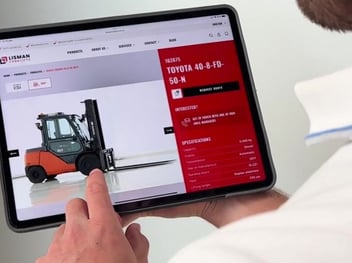How Lisman Forklifts Champions Sustainability Through Light-Refurbishment
In an era where environmental sustainability is valued and expected, businesses across sectors are being called to reassess their practices and align them with the principles of ecological stewardship. The material handling industry, with its reliance on heavy machinery like forklifts, stands at a critical junction. The production of new equipment requires significant amounts of raw materials and energy, contributing to environmental degradation. However, Lisman Forklifts offers a compelling solution that challenges the status quo—light-refurbishing used forklifts to meet current demands without the heavy environmental toll associated with manufacturing new units. This approach not only speaks volumes about Lisman's commitment to sustainability but also sets a benchmark for the industry at large.
The Environmental Quandary of New Manufacturing
Manufacturing new forklifts is resource-intensive, involving the extraction, processing, and transportation of raw materials, all of which contribute to carbon emissions, habitat destruction, and depletion of natural resources. Additionally, the production process itself, from forging and assembly to painting and shipping, requires substantial energy inputs, further exacerbating the environmental impact.
Light-Refurbishment: A Greener Alternative
Here's how Lisman is making a difference:
▪️ Extending Equipment Lifespan
By breathing new life into used forklifts, Lisman directly extends the lifespan of existing equipment. This practice not only prevents functional machinery from ending up in landfills but also diminishes the need for new units. Each light-refurbished forklift represents a tangible reduction in waste and conservation of the resources that would have been consumed in the production of a new machine.

▪️ Resource Conservation
Light refurbishment is inherently resource-efficient. It maximizes the value of materials already in circulation, significantly reducing the need for virgin raw materials. This not only conserves precious resources but also limits the environmental damage associated with their extraction and processing. For example, reconditioning or replacing parts of a forklift uses a fraction of the materials and energy required to manufacture an entirely new piece of equipment.

▪️ Energy Efficiency
The energy required to light-refurbish existing equipment is considerably less than needed for manufacturing new machines from scratch. Lisman's light-refurbishment process is fine-tuned to be as energy-efficient as possible, contributing to a reduction in overall carbon emissions. By optimising operations and leveraging advanced technologies, Lisman ensures that the process of bringing a forklift back to its prime condition is done with minimal environmental impact.
▪️ Waste Reduction
A core aspect of Lisman's light-refurbishment program is the meticulous attention to waste reduction. Components that can be salvaged are refurbished, while those that can't be reused in their current form are often recycled, ensuring that waste is kept to an absolute minimum. This approach not only helps conserve resources but also reduces the amount of waste sent to landfills, further lessening the environmental footprint of Lisman's operations.

A Model for Sustainable Practices
Lisman Forklifts' commitment to light-refurbishing used equipment is more than a business model; it's a testament to the company's dedication to sustainability and environmental responsibility. By choosing light-refurbishment over new manufacturing, Lisman not only provides high-quality, reliable forklifts but also contributes to a more sustainable future.
Lisman Forklifts stands out as a beacon of sustainable practice in a world increasingly aware of the importance of ecological preservation. The company's light-refurbishment process demonstrates that it is possible to meet the demands of the material handling industry without sacrificing environmental integrity. Through innovation, dedication, and a commitment to green practices, Lisman is helping pave the way for a more sustainable industrial future, proving that environmental responsibility and business success can go hand in hand.




